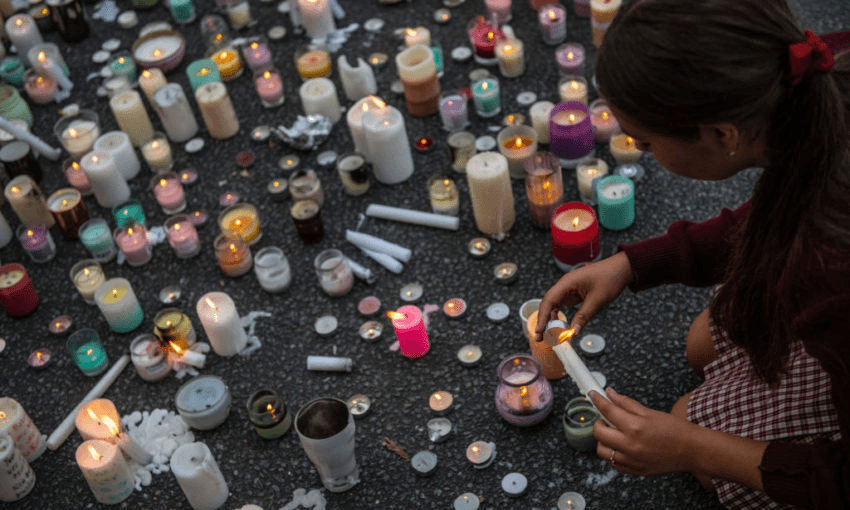The Royal Commission investigating the March 15 attacks will look to determine if the event could (and should) have been prevented. AUT law professor Kris Gledhill explains what the Commission needs to do to stay on the right track.
The Christchurch mosque attacks raise both narrow and wider issue. The narrow issue, in the hands of the criminal courts, is whether the accused man carried out the numerous fatal and near-fatal attacks in such a way as to be guilty of murder and attempted murder.
The wider issue is in the hands of the Royal Commission of Inquiry into the Attack on Christchurch Mosques, which has just commenced its work following the appointment of its second member: former diplomat, Jacqui Caine, who joins the Chair of the Commission, Justice William Young of the Supreme Court.
The Royal Commission has been given the task of investigating four things. First, what “relevant state sector agencies” – which can be taken to cover the police and the intelligence community – knew about the activities of the accused man before his arrest. Second: “What, if anything, they did with that information”. Third: “What measures agencies could have taken to prevent this attack”. And fourth: “What measures agencies should take to prevent such attacks in the future”.
These sensible questions reflect the important issue of whether the atrocity could and should have been prevented and – if there were deficiencies in what was done – what changes will minimise the risk of any recurrence. The context of these questions is the possibility that the focus of the agencies was in the wrong place.
What is the best process for answering this wider question? There is guidance from the international community because, unfortunately, avoidable deaths have occurred in various settings and it has been found that those charged with protecting life have failed.
There is an overarching legal framework for this. Duties to protect life are placed on the government under Article 6 of the International Covenant on Civil and Political Rights 1966. Aotearoa New Zealand agreed to the standards in this treaty in 1978. Put briefly, there is a duty on police and security forces to take action if they know or ought to know of significant risk to life.
Implicit in this duty to protect life is an obligation to investigate whether inadequate action was taken by state officials if the duty to protect was breached. The reasons for such an investigation include the need to assess the lessons that can be learned with regards to preventing a repetition. But there is also a need to consider questions of reparation for those most directly affected, victims and their families.
This helps to answer what the process should be. The issue of reparations means that victims and their families are directly involved and not merely bystanders. Moreover, the investigation into what went wrong and what can be done to prevent a recurrence is something that group has a particular interest in. This will ensure that the wider public interest is served. The latter is also served by having an investigation that is as public as possible, which will support the important aim of public confidence that the investigation is thorough.
Moreover, the absence of as much being done in public as possible creates the impression of the authorities adopting a “trust us, we know best” approach. This will not do in the context of investigating whether the authorities got it wrong in a way that led to significant loss of life.
There are downsides to greater victim and public involvement in terms of the speed of the investigation and perhaps, its cost. But a process that leads to a better outcome is surely worth that: interim findings can always be released to meet the needs of urgency. In addition, a Royal Commission, as can a court, may hear some material in private if the public interest mandates that secrecy.
How does the Royal Commission fare against these requirements? Its terms of reference clearly involve it asking some of the right questions. But there is a significant caveat in that it is precluded from looking into certain areas, namely gun laws, the role of social media and other non-state agencies, and the response of the police after the incident had begun.
It may be that the response to the attack is beyond reproach, but not being allowed to ask the question is restrictive. Furthermore, if part of the problem was a failure to regulate social media and its allowance of vile hatred, or the inadequate enforcement of gun laws, that is something people need to know. This requires an amendment of the terms of reference of the Commission.
The process being followed is also problematic. The Commission issued a note on 13 May setting out a provisional view that it will conduct its information gathering in private. There is an indication that it may have some public foray. There is no mention at all of ensuring that the victims and their families are given an appropriate status. The closest one gets is that a Muslim Community Reference Group will be identified.
Nothing in the Terms of Reference or the Inquiries Act 2013 prevent the Commission from ensuring that there is more direct engagement from the victims and their families. These are the people who the state would have failed if the atrocity is found to have been preventable. They should be more directly involved.
Further, the approach of proceeding in public unless there is a good reason not to would allow informed input into the process. The Commission’s provisional view it that its process is clearly one that it can modify. It is to be hoped that it will review its approach and ensure it complies with the international human rights framework.

